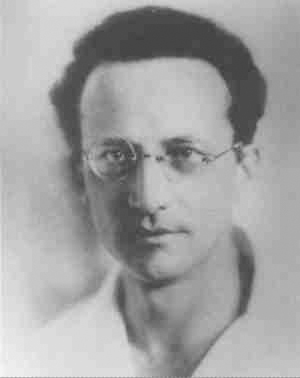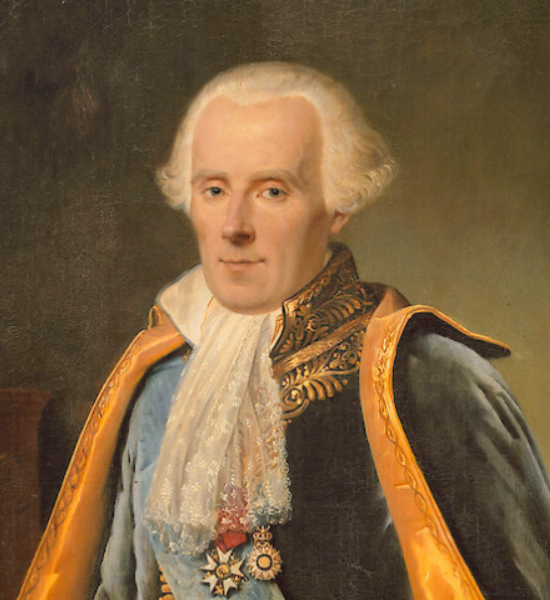Chapter 17. (continued)




But now let’s add some other powerful ideas.
If
we truly believe in science, then we are committed to integrating into our
thinking all well-supported theories in any of the branches of science. In the
twenty-first century, what that means is that we must now try to integrate
uncertainty, quantum and non-quantum, into our world view. Earlier we saw that
extrapolating from the quantum model led us to conclude that the values we call freedom and love are real, that is, that our believing in these values and
living under their worldview leads to survival-oriented, real-world, positive
consequences.

Erwin Schrodinger
However,
quantum theory, once it’s accepted, also comes with
some other startling corollaries and experimental findings. Quantum
entanglement implies that the universe feels itself, all over, all at once. The
universe is not, as pre-quantum science pictured it, cool, local, and aloof. It
is capable of what Einstein called “spooky action at a distance,” and in fact,
it functions that way all the time.5 Our best twenty-first century
model of the universe is telling us that all the parts of the universe are in
touch, instantly, with all the other parts, all the time. Schrodinger put it
this way: “There seems to be no way of stopping [entanglement] until the whole
universe is part of a stupendous entanglement state.”6
If
distant parts of an entity are in touch with one another (in the case of the
physical universe, instantly), it is entirely reasonable to postulate that
there must be a controller of some kind connecting the stimulus of a spin of
one particle and the reverse-spin response of another particle in some distant
location.
This
way of seeing the universe as having a kind of awareness is my second big idea.
It is well known to scientists, theist and atheist alike. They admit it is a
way to move a bit closer to saying that a possibility exists of a sort of a
God.

Murray Gell-Mann, Nobel Prize–winning physicist
But
according to the science-minded atheists, all these ideas about how the
universe stays consistent and how it seems to have a kind of awareness, even
taken together, add up to little more than a trivial belief. Nobel Prize–winning
physicist Murray Gell-Mann went so far as to derisively call this whole way of
thinking “quantum flapdoodle.”7
In
other words, we may have deep feelings of wonder when we see how huge and
amazing the universe is—far more amazing, by the way, than any religion of past
societies made it seem. Our intuition may even suggest that for information to
go instantaneously from one particle in one part of the universe to another
particle in another vastly separated part, a controlling consciousness of some
kind must be joining the two. But these feelings, the atheists say, don’t change
anything. The God that theists describe and claim to believe in, according to
all the evidence, doesn’t answer prayer, doesn’t give us some other existence
after we die, doesn’t perform miracles, and doesn’t care a hoot about us or how
we behave.

Pierre-Simon de Laplace
In
the atheistic scientistic view, believing in such a God is simply excess
baggage. It is a belief that we might enjoy clinging to as children, but it is
extra, unjustified weight that only encumbers the active thinking and living we
need to practice to keep increasing our knowledge and living in society as
responsible adults. Theism, atheists say, pointlessly hobbles both science and
common sense. Or as Laplace famously told Napoleon, “Monsieur, I have no need
of that hypothesis.”
William
of Occam, English philosopher and theologian
Centuries
earlier, William of Occam said the explanation that best suffices for any
phenomenon is the simplest one. Newton reiterated the point: “We are to admit
no more causes of natural things than such as are both true and sufficient to
explain their appearances.”8 The method of science tells us that if
we can explain a phenomenon by using two basic concepts instead of three or
four, the two-pronged tool should be the one we choose.
According
to atheists, belief in God—or at least in a God that might or might not
permeate this consistent, entangled, self-aware, material universe—is a piece
of unneeded, dead weight. In our time, under the worldview of modern science,
the idea has no content. It can and should be dropped. Or as the sternest
atheists put it, it is time that humanity grew up.
No comments:
Post a Comment
What are your thoughts now? Comment and I will reply. I promise.